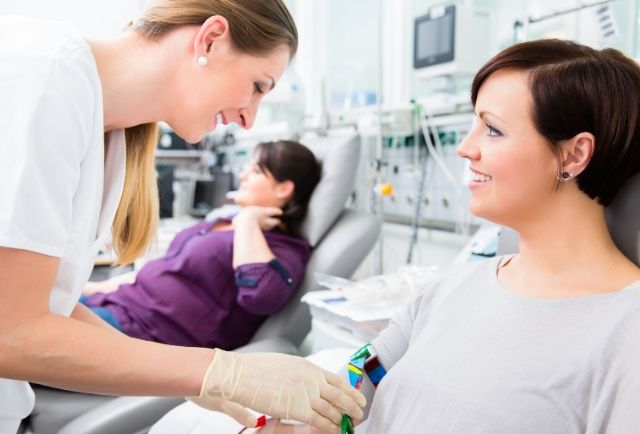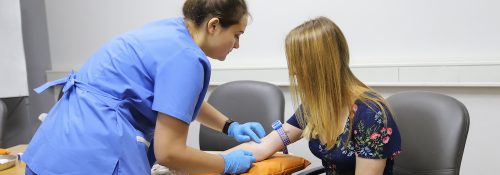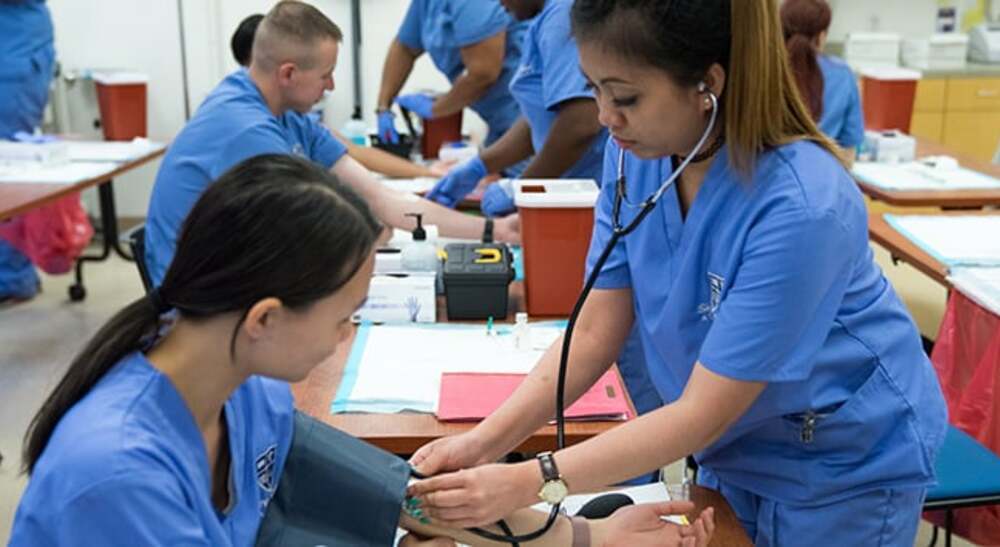In-Depth Northeast Medical Institute Phlebotomy Courses Stamford: Advancement Your Abilities
Important Factors to Consider When Selecting the Most Appropriate Medical College Curriculum for You
Choosing the most fitting medical college educational program is an essential decision that can greatly influence your academic trip and future career path. As aspiring doctor, the option of curriculum ought to straighten with your personal discovering style and profession ambitions. However, beyond these initial factors to consider, numerous vital aspects enter into play when making this selection. By exploring the subtleties of teaching methodologies, curriculum adaptability, and clinical direct exposure possibilities, a much more comprehensive understanding of what makes an educational program suitable for you emerges. Let's check out these essential elements that can shape your clinical education and ultimately, your professional trajectory.
Personal Understanding Design

Medical institutions that offer diverse teaching approaches and resources can fit numerous discovering designs, promoting a inclusive and vibrant educational setting. Inevitably, understanding personal discovering preferences equips trainees to make informed choices regarding their medical education and learning, establishing a solid structure for their future professions in health care.
Occupation Purposes Positioning

Furthermore, aligning career purposes with the medical school educational program can additionally enhance motivation and interaction throughout the instructional trip. When trainees see the straight significance of their coursework to their future career, they are most likely to stay concentrated and dedicated to their researches. For that reason, when picking a clinical institution educational program, it is critical to meticulously consider how well it aligns with one's occupation objectives to guarantee an effective and satisfying expert course.
Training Approaches
Taking into consideration the placement of profession objectives with the selected medical school educational program, an examination of the training methodologies utilized comes to be vital fit the learning experience. The effectiveness of a medical institution curriculum heavily depends on the training techniques used by the establishment. Numerous training methods, such as talks, small seminar, problem-based knowing, simulation-based training, and hands-on medical experience, can dramatically affect exactly how well pupils understand and maintain info.
Simulation-based training enables trainees to practice clinical abilities in a regulated atmosphere before engaging with genuine clients. Hands-on medical experience provides a firsthand understanding of person care and medical techniques.
When picking a medical school educational program, aiming trainees should take into consideration the teaching approaches employed to make certain that their discovering preferences and toughness line up with the educational strategy of the institution.
Educational Program Adaptability
When examining medical college programs, evaluating the level of curriculum adaptability is crucial for prospective students looking for a customized educational experience. Curriculum adaptability refers to the level to which trainees can individualize their discovering courses within the medical college curriculum. An educational program that provides adaptability allows trainees to seek their rate of interests, concentrate on areas where they need a lot more assistance, and engage in learning experiences that align with their occupation objectives.

Potential medical students should consider how a clinical college's educational program adaptability straightens with their understanding choices, occupation goals, and personal objectives. By picking a program that uses the best balance of structure and flexibility, pupils can enhance their academic experience and prepare themselves for successful jobs in medication.
Medical Exposure Opportunities
Checking out the sensible application of medical knowledge, scientific direct exposure possibilities play an essential function in forming a thorough clinical education. These chances supply pupils with invaluable hands-on experience in real healthcare settings, allowing them to bridge the gap between theory and method. When thinking about medical institution curricula, the high quality and quantity of medical exposure must be carefully assessed.
Effective medical exposure ought to provide a diverse variety of experiences web throughout numerous specialties, guaranteeing that students are exposed to various medical scenarios and patient demographics. Direct exposure to outpatient facilities, inpatient wards, surgical theaters, and emergency situation divisions can assist students create a well-shaped understanding of various aspects of healthcare delivery. In addition, chances for community-based treatment and communications with underserved populations can cultivate a deeper gratitude for the social components of health.
Furthermore, the visibility of helpful professors and coaches throughout these scientific experiences can considerably boost the discovering process. Professors assistance and constructive comments can help trainees review their scientific encounters, determine locations for enhancement, and boost their medical skills and decision-making capabilities (Northeast Medical Institute CNA Classes Near me Stamford). In general, durable medical direct exposure opportunities are vital for preparing future medical professionals to deliver top quality client treatment effectively
Final Thought
Finally, when selecting a medical institution educational program, it is vital to consider your individual learning style, placement with career objectives, showing techniques, educational program flexibility, and medical exposure possibilities. These variables play an essential function in establishing the most appropriate program for your specialist and instructional growth. Make certain to extensively evaluate each facet to make an educated choice that will best support your that site growth in the medical area.
Recognizing one's individual discovering style is essential when selecting a medical college curriculum. By identifying one's learning design early on, aiming clinical trainees can strategically choose an educational program that provides to their staminas, ultimately improving their knowing experience and academic success.
When evaluating clinical institution programs, evaluating the extent of educational program versatility is vital for prospective students looking for a customized academic experience. Curriculum adaptability refers to the degree to which students can individualize their discovering paths within the medical school educational program.In conclusion, when selecting a clinical school curriculum, it is essential to consider your personal discovering design, positioning with job goals, teaching methodologies, curriculum flexibility, and scientific exposure chances.